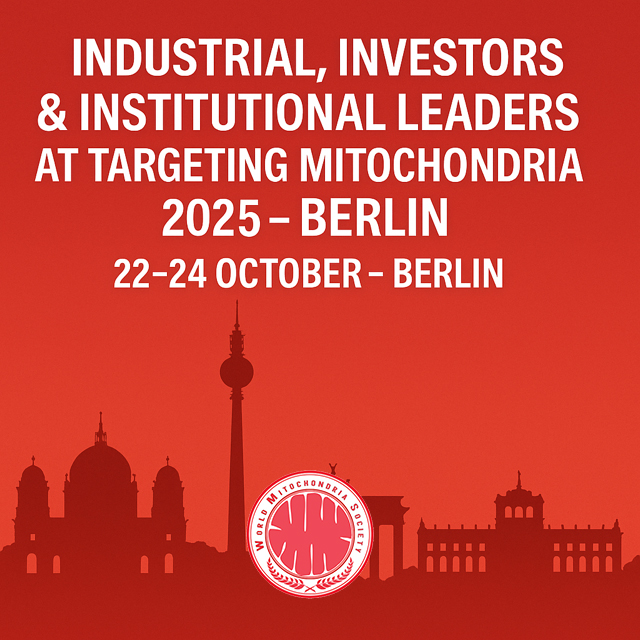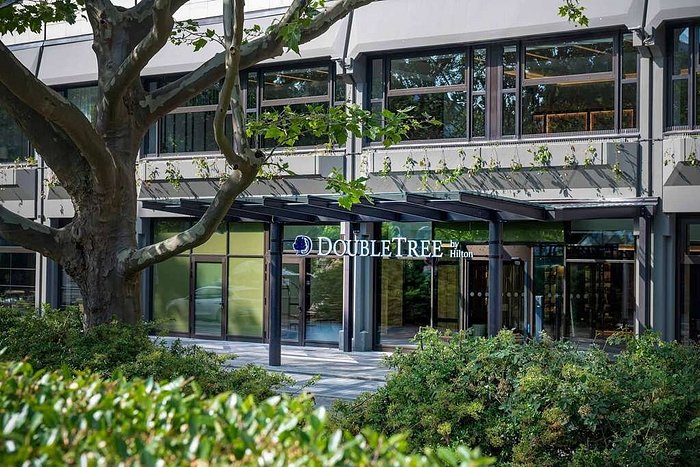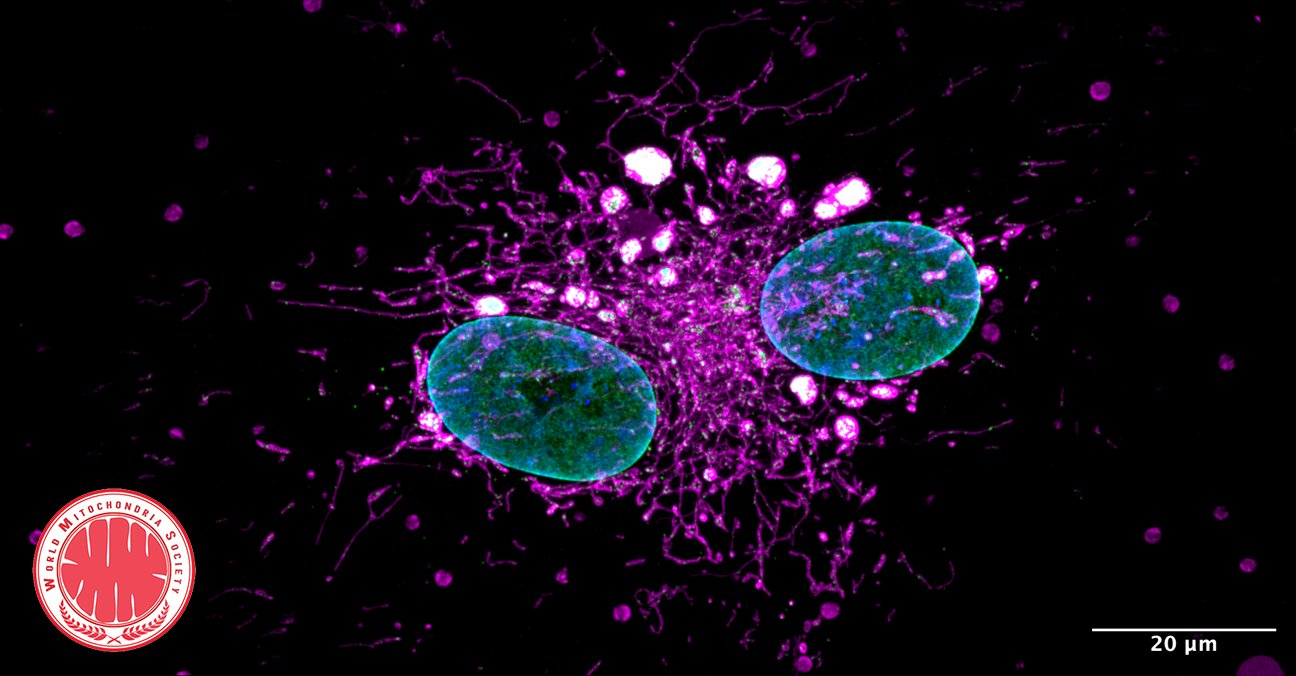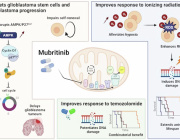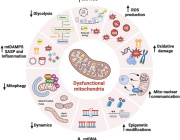Organize a meeting with the leaders in mitochondria field
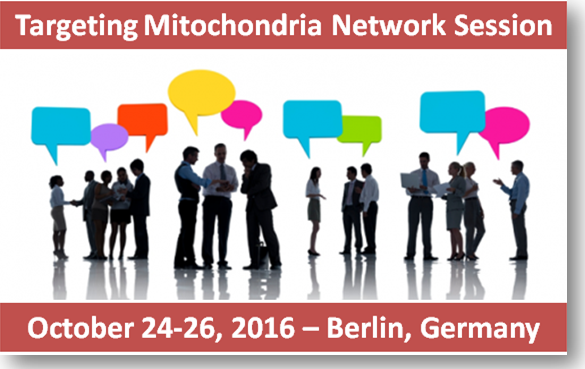 Targeting Mitochondria attendees, academics and industrials, are invited to a warm-up networking session over the lunch and coffee breaks. Already more than 300 registrants!
Targeting Mitochondria attendees, academics and industrials, are invited to a warm-up networking session over the lunch and coffee breaks. Already more than 300 registrants!
Daniel Schniertshauer was awarded for his poster presentation during Targeting Mitochondria 2016
At the end of Targeting Mitochondria World Congress, Pr Volkmar Weissig and Pr Marvin Edeas awarded two scientists for their research. Among them:
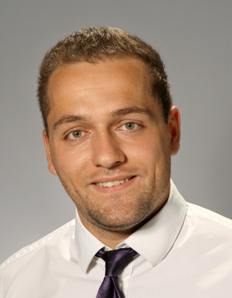 |
Daniel Schniertshauer from the Albstadt-Sigmaringen University of Applied Sciences, Germany for his poster presentation about "Accelerated Regeneration of ATP Level after Irradiation in Human Skin Fibroblasts by Coenzyme Q10". You can download his poster by clicking here.
|
|
Testimonial by Dr Schniertshauer: "The 7th World Congress on Targeting Mitochondria was the second time I was allowed to attend this conference after 2015. The participation of several hundred participants from all over the world at the last congress showed me the importance of this event in the research community of mitochondria. As last year, I was already looking forward to the most diverse presentations, the nice conversations with colleagues and the establishment of contacts between the lectures. In addition, the daily poster sessions were excellent for picking up the one or the other piece of advice from experienced colleagues.
|
|
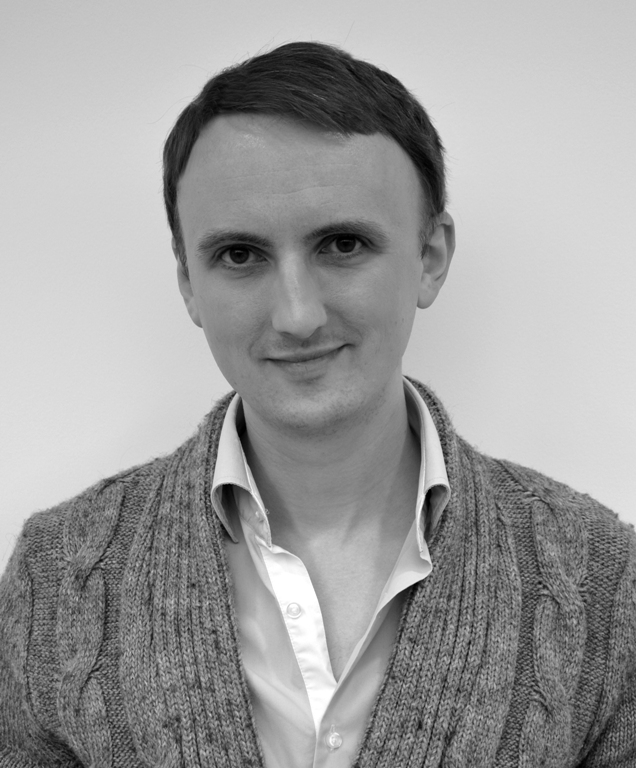 |
François Mouton-Liger from the ICM - Brain & Spine Institute, France for his short oral presentation about "Role of Parkin in innate immunity: crosstalk between mitochondrial dysfunction and NLRP3 inflammasome signaling".
|
|
|
The second award was discerned to François Mouton-Liger from the ICM - Brain & Spine Institute, France for his short oral presentation about "Role of Parkin in innate immunity: crosstalk between mitochondrial dysfunction and NLRP3 inflammasome signaling".
For more information about this award, please click here.
World Mitochondria Society
The award for the short oral presentation was discerned to François Mouton-Liger
At the end of Targeting Mitochondria World Congress, Pr Volkmar Weissig and Pr Marvin Edeas awarded two scientists for their research. Among them:
 |
François Mouton-Liger from the ICM - Brain & Spine Institute, France for his short oral presentation about "Role of Parkin in innate immunity: crosstalk between mitochondrial dysfunction and NLRP3 inflammasome signaling".
|
|
|
The second award was discerned to Daniel Schniertshauer from the Albstadt-Sigmaringen University of Applied Sciences, Germany for his poster presentation about "Accelerated Regeneration of ATP Level after Irradiation in Human Skin Fibroblasts by Coenzyme Q10".
For more information about this award, please click here.
World Mitochondria Society
Pr Marvin Edeas and Pr Volkmar Weissig commented the 7th World Congress on Targeting Mitochondria 2016
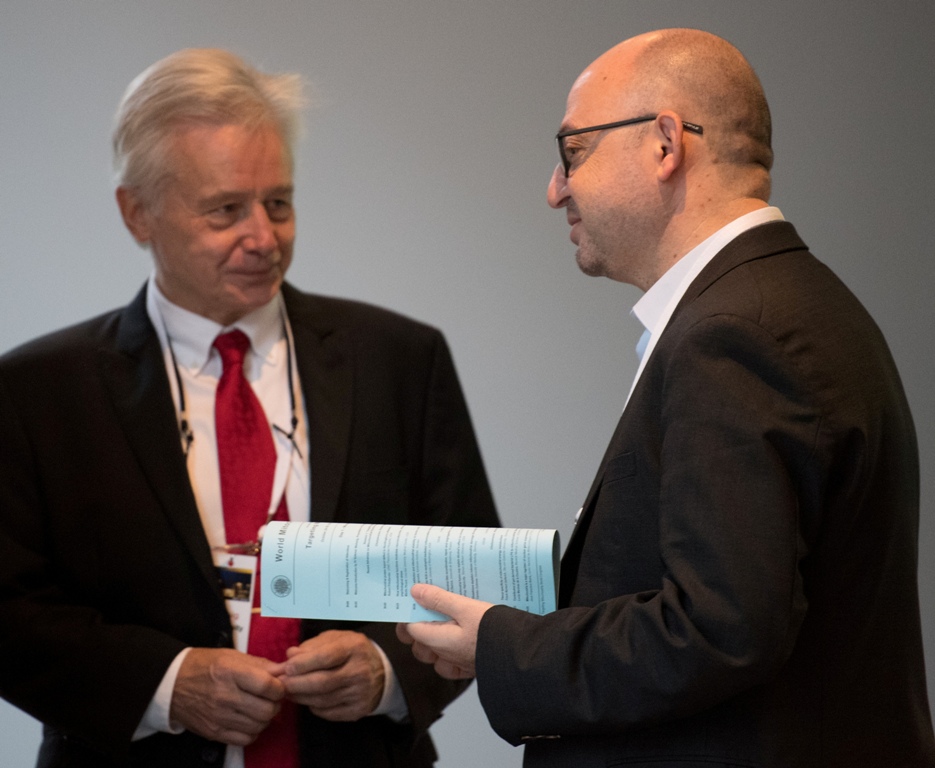
The 7th World Congress on Targeting Mitochondria was organized in Berlin on October 24-26, 2016. This seventh edition was again a huge success and gathered more than 350 attendees, academics, industrials and start-ups during three days, representing more than 27 countries.
The scientific committee validated more than 170 communications (oral and poster) which have highlighted the recent scientic advances on mitochondria and all related researches such as the methods to evaluate mitochondria function/dysfunction, but also new strategies to target the mitochondria. To access to the final program of the congress, please follow this link.
Pr Volkmar Weissig, from the Midwestern University commented: “As President of the WMS I am extremely happy about the success of our 7th World Conference on Targeting Mitochondria. I would like to personally thank the organizing team for the excellent work they have done in planning and setting up this conference. Of course, any conference is just as good as its participants. Therefore I sincerely thank all invited speakers, all presenters of short oral communications and all poster presenters for their excellent contributions. I also would like to thank all other attendees for participating in our conference. Our conference series has over the last years significantly grown with respect to the number of registrations. With over 310 participants from almost all continents we have set a new a record. I believe our conference series has established itself as a major event in the international “mitochondrial landscape”. If I may say so, mitochondria have found a home in Berlin! With excitement I am already looking forward to the 8th edition next year and I sincerely hope to see most if not all of you again one year from now.”
From his side, Pr Marvin Edeas, from Institut Cochin, INSERM U1016, University Paris Descartes commented: "The world of mitochondria is "hyper-dynamic". Mitochondria is a very dynamic organelle, it moves, oscillates and communicates with cells and in particular with microbiota. We need to re-design a "dynamic" strategy to target mitochondria in all its dimensions. This strategy must integrate all factors and actors (microbiota).
Again, as founder of WMS and co-chairman of the scientific committee, I believe that mitochondria-microbiota inter-talk is one of the perfect target to highlight."
To conclude this three-day meeting, the scientific awarded two scientists for their research:
|
Daniel Schniertshauer from the Albstadt-Sigmaringen University of Applied Sciences, Germany for his poster presentation about "Accelerated Regeneration of ATP Level after Irradiation in Human Skin Fibroblasts by Coenzyme Q10". For more information about this award, please click here. |
|
François Mouton-Liger from the ICM - Brain & Spine Institute, France for his short oral presentation about "Role of Parkin in innate immunity: crosstalk between mitochondrial dysfunction and NLRP3 inflammasome signaling". For more information about this award, please click here. |
The dates of Targeting Mitochondria 2017 will be announced very soon on the website.
World Mitochondria Society
www.targeting-mitochondria.com
The registrations for Targeting Mitochondria 2017 World Congress are now open!
On behalf of the Scientific Committee of World Mitochondria Society, we are pleased to inform you that the 8th World Congress on Targeting Mitochondria will be organized on October 23 and 24, 2017 at Steigenberger Hotel, in Berlin.
You can now register to the congress with the very early bird rates before March 21, at midnight, by clicking here.
You can also submit your abstract until September 14 for short oral presentation and until September 28 for poster presentation here.
We look forward to meeting you in Berlin next October.
World Mitochondria Society
www.targeting-mitochondria.com
Presentation of the mitochondrial DNA damaged induced inflammation in lung epithelial cells

Dr Bartosz Szczesny, Associate Professor at the Department of Anesthesiology of the University of Texas Medical Branch at Galveston, USA is invited during Targeting Mitochondria World Congress is to give a presentation about the mitochondrial DNA damaged induced inflammation in lung epithelial cells.
According to Dr Szczesny: "Pulmonary epithelial cells are key effectors and targets in the pathogenesis of inflammatory lung diseases such as asthma, and chronic obstructive pulmonary disease, among others. Oxidative stress has been implicated at the earliest step in development of lung inflammation, but the molecular mechanisms of how oxidantive injury to epithelial cells develops inflammatory response remain unclear. While investigating the mechanisms responsible for activating inflammation in response to prolonged, low-level oxidative stress, we identified a role for an active and selective cellular extrusion of damaged mitochondrial DNA, that did not affect cellular viability. Selective release of damaged mitochondrial DNA, first into the cytoplasm and subsequently into the extracellular space, triggers autocrine and paracrine modes of the inflammatory response. I will be discussing cellular outcomes and inflammatory signaling pathways in response to mitochondrial DNA-specific damage in cell culture and in vivo models."
More information about the congress: www.targeting-mitochondria.com
Self-Assembled Polymeric Nanoparticle for Mitochondria-Targeting Drug Delivery
 Dr Han Chang Kang, from the Department of Pharmacy, The Catholic University of Korea, Republic of Korea will present his recent research about the Self-Assembled Polymeric Nanoparticle for Mitochondria-Targeting Drug Delivery.
Dr Han Chang Kang, from the Department of Pharmacy, The Catholic University of Korea, Republic of Korea will present his recent research about the Self-Assembled Polymeric Nanoparticle for Mitochondria-Targeting Drug Delivery.
Recently, subcellular targeting drug delivery systems that specifically reach subcellular compartments (e.g., cytosol, nucleus, and mitochondria) of interest have garnered more attention because their action sites for generating therapeutic effects occur not just at the cellular level but at the subcellular level as well. Among them, this presentation will be focused on mitochondria-targeting self-assembled polymer-based nanoparticles for intracellular drug delivery because mitochondria are very significant intracellular organelles for controlling the homeostasis of vital physiological functions and synthesizing bioenergy molecules and their dysfunction leads to a variety of human disorders including neurodegenerative, neuromuscular, cardiac, and metabolic diseases. The significance of the mitochondria in disease allows a broad spectrum of therapeutics to strengthen or weaken their intrinsic or newly-introducing functions. Thus, the presentation will introduce the mitochondria-targeting drug delivery systems designed by me and my collaborators.
For more information about Targeting Mitochondria Congress: www.targeting-mitochondria.com
What is the impact of mitochondria-targeted antioxidants on cancer progression?
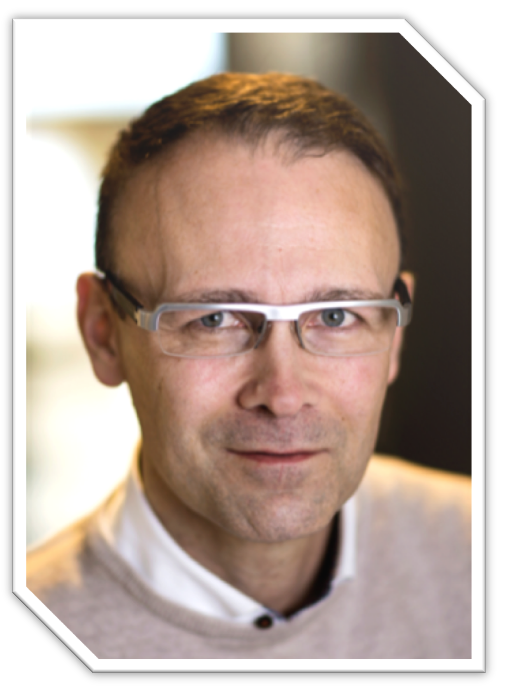 ROS can be produced at different sites in cells: it can be formed in the plasma membrane, the cytosol, but the main ROS generator is the electron transport chain (ETC) located in the mitochondrial matrix. Interestingly, enhanced or disrupted mitochondrial activity can increase superoxide production within the mitochondria of cancer cells. The increased superoxide production has been associated with cell survival and metastasis. Thus, it has been hypothesized that specifically targeting mitochondrially-produced ROS could reduce the survival and invasive abilities of cancer cells. Consequently, several mitochondrial antioxidants have been developed and tested; but thus far, no studies have defined the impact of mitochondria-targeted antioxidants on the progression of cancer in endogenous mouse models.
ROS can be produced at different sites in cells: it can be formed in the plasma membrane, the cytosol, but the main ROS generator is the electron transport chain (ETC) located in the mitochondrial matrix. Interestingly, enhanced or disrupted mitochondrial activity can increase superoxide production within the mitochondria of cancer cells. The increased superoxide production has been associated with cell survival and metastasis. Thus, it has been hypothesized that specifically targeting mitochondrially-produced ROS could reduce the survival and invasive abilities of cancer cells. Consequently, several mitochondrial antioxidants have been developed and tested; but thus far, no studies have defined the impact of mitochondria-targeted antioxidants on the progression of cancer in endogenous mouse models.
In this talk, Pr Martin Bergö from Sahlgrenska Cancer Center, Sweden, will give an update of their experiments designed to address this issue.
For more information about Targeting Mitochondria Congress: www.targeting-mitochondria.com









